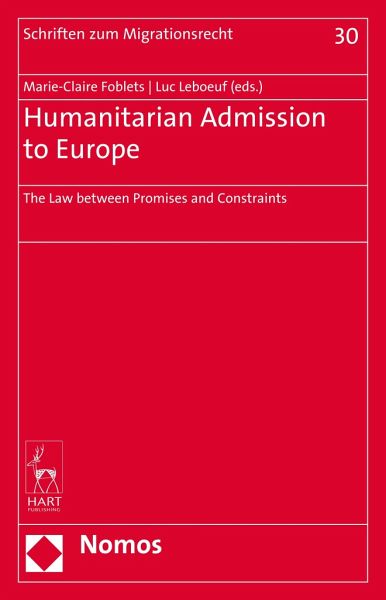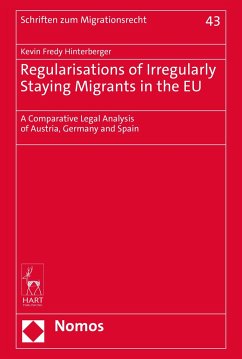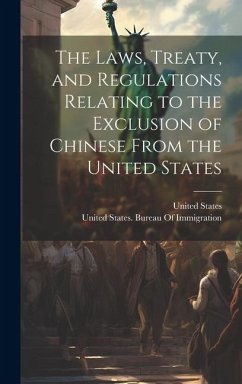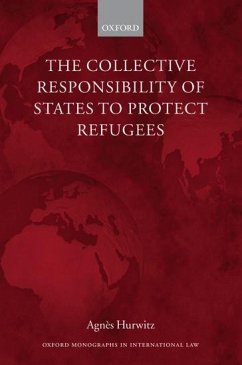Nicht lieferbar

Humanitarian Admission to Europe
The Law Between Promises and Constraints
Herausgeber: Foblets, Marie-Claire; Leboeuf, Luc
Versandkostenfrei!
Nicht lieferbar
Bringing together contributions from legal scholars and practitioners, this book contributes to a broader reflection on the extent to which policy controversies on humanitarian admission to Europe are channeled and managed through law. The book is divided into four parts. The first part identifies the international and European legal obligations that are binding on both the EU and the Member States, and the constraints they impose - potentially and actually - when dealing with migrants who are outside EU territory. The second part studies the legal framework of humanitarian admission in three ...
Bringing together contributions from legal scholars and practitioners, this book contributes to a broader reflection on the extent to which policy controversies on humanitarian admission to Europe are channeled and managed through law. The book is divided into four parts. The first part identifies the international and European legal obligations that are binding on both the EU and the Member States, and the constraints they impose - potentially and actually - when dealing with migrants who are outside EU territory. The second part studies the legal framework of humanitarian admission in three Member States (Germany, Italy and Belgium), as well as the related procedures and practices. The third part focuses on the experiences of those seeking humanitarian admission, including how they mobilise the law to obtain legal access to Europe. It presents the results of ethnographic fieldwork conducted among refugees in a refugee camp in Uganda who are seeking resettlement, as well as the testimony of the lawyer who defended a Syrian family applying for a humanitarian visa in Belgium in a landmark case that was litigated before the CJEU (X and X v Belgium). The fourth part discusses the prospects for future developments in the EU legal and policy framework, including attempts at reforming the EU Visa Code and establishing a Union resettlement framework.












